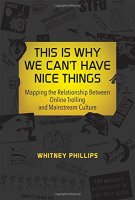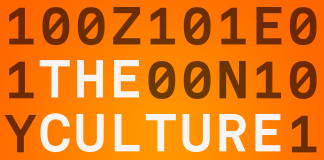
This Is Why We Can’t Have Nice Things by Whitney Phillips

Read the summary below and get the key insights in just 10 minutes!


- Who trolls are and what they do;
- How trolling holds up a mirror to behaviors and attitudes in mainstream culture;
- How the pursuit of “lulz” – laughter at the expense of others – drives trolling; and
- How lawmakers are responding to the issue.

“Defining Terms”
Trolls set out “to cause disruption and/or trigger or exacerbate conflict for the purposes of their own amusement.” The word “trolling” first appears, connected to online activity, in a 1992 entry in the Oxford English Dictionary. Trolls believe “nothing should be taken seriously,” and they demonstrate this belief by striking out at sincerity whenever they find it. Trolls often attack people who are suffering from a tragedy. They even more vigorously harass people who attach themselves to misfortune with sympathetic grieving. By definition, trolling is unkind, outrageous, scatological, juvenile and unfair. Trolls attack anonymously and thrill in pummeling the emotions of people they don’t know. Their victims cannot fight back, but when they try, trolls hit them twice as hard.
Trolls understand how to infuriate the mainstream media. The way trolls assault news stories reflects the some of the sensationalist coverage and emotional manipulation coming from the press itself. Predictably, the media express outrage about trolling.
Ugly Trolls
To many people, trolls represent the evil side of the Internet. They constitute a vast, unidentifiable, disconnected, anonymous universe of online users who simultaneously a lot in common and almost nothing at all. Trolls are the reason the Internet is not nicer or more sympathetic and collaborative. But, in fact, trolls also reflect respected and even celebrated behaviors drawn from conventional culture.
Trolling is the expression of trollers’ online demeanor. Some attack, some harass and some seek fun – however juvenile. Some trolls pick a target and hit it for weeks; some strike once and disappear. The most reprehensible trolls find glee in mocking the online communities that spring up around teenagers’ tragic deaths or murders; these ghouls are “RIP trolls.” Any perceived ideological fervor, political correctness or sincerity is fair game. Trolls say they are teaching others a lesson; that excuse enables them to act horribly and still claim the moral high ground.
Anonymity gives trolls a mask. Even in interviews, trolls might mislead. So, despite speaking and communicating with many trolls, author Whitney Phillips admits she can’t objectively confirm her impressions regarding troll demographics. She believes her voluminous anecdotal evidence suggests that trolls are overwhelmingly white males who enjoy the privileges of Internet access and free time to troll.
The “Holy Trinity” of Gross
People think of the image website 4Chan as a hotbed of trolling, and it is. But trolls were active well before that website existed. America Online even experienced trolling in the 1990s. Through the years, trolls consistently employ three disgusting images in their attacks: “Goatse, Tubgirl and Lemon Party.” The portrayals are shocking and guaranteed to offend almost every sensibility. Yet those same qualities account for these images’ longevity and repeated use.
“Lulz”
What drives trolls is “lulz,” an online slang term for laughter at the expense of others, derived as a plural of the common jargon “laugh out loud” (LOL). Lulz is similar to schadenfreude – savoring the unhappy circumstances of someone you don’t much like. But schadenfreude is passive, while lulz is active and hostile. Trolls revel in their victims’ pain and discomfort. Most lulz attacks target “African Americans; women; and gay, lesbian, bisexual, transgender and queer (GLBTQ) people.” Thus, lulz expresses a perceived American white male sense of superiority. Trolls find lulz everywhere and will attack other trolls as well.
Mitchell Henderson
Consider the trolling aimed at Mitchell Henderson. He was a teenager who committed suicide using a weapon belonging to his parents. He had lost his iPod two days before. Trolls leaped on these two facts and attacked his family, linking the boy’s suicide to the loss of his iPod. Trolls have a particular appetite for young, white, apparently affluent suicides. They show only disdain when a privileged person commits suicide. Trolls exposed the Henderson family’s personal information, captured their MySpace page and posted endless photos of iPods.
Such behavior – plundering the grief of others for laughs – reflects the psychological quality of “dissociation,” which raises an “emotional firewall” between an attacker and a target. To the dissociated, emotions betray weakness and must be suppressed; feelings exist only as fodder for exploitation. Trolls use dissociation to ignore the genuine emotions surrounding their targets and the damage the attacks cause. The greater the level of dissociation, the more trolls dig up the most exploitable aspects of a story.
Memes
British biologist Richard Dawkins first used the word “meme” in 1976 as a description of how “cultural artifacts” – like LOLcats – move through the broader society. Pretty much every prevalent meme online between 2003 and 2011 gained its popularity because trolls generated it or amplified its online presence. The troll universe operates as a system of self-replenishing memes. Lulz creates and sustains connection among the anonymous.
This is how memes work: Someone finds lulz-worthy material and posts it. Someone else responds, possibly raising the ante of offensiveness or humor. Someone else gets even grosser. Each new step can produce new memes. Those who follow these developments or join in at any point gain entrance to the community and reinforce its values. Lulz breeds lulz and a powerful sense of in-group belonging – always at the exclusion of the victim. Emotional distance grows between the trolls and their prey as this skein of material lengthens and the lulz magnifies.
As the Internet came into widespread use, millions of novice meme generators became active. But the web also helped make mainstream users more aware of trolling.
Action and Identity
The majority of trolls interviewed maintain that a profound difference separates their troll identities from their public personalities and behaviors. Each identity operates under a different and distinct set of mores and emotions. Trolls believe they can live with this separation without experiencing emotional contradiction. In fact, trolls expend considerable energy ensuring that these two personalities have little or nothing in common. Because the online identity is a “mask,” a troll can claim a “clear insider/outsider distinction.”
Trolls know what they’re doing. Dissociation may ensure they don’t feel their victims’ emotions, but trolls do comprehend the effects of their actions. They know which societal and cultural buttons to push to inspire the greatest outrage – and thus acquire more lulz. In a curious inconsistency, understanding how to most hurt or upset someone requires empathy. However, for the dissociated troll, that empathy is entirely abstract or intellectualized.
Mediation
Trolls’ emotional dissociation mirrors a larger cultural coping mechanism: People use “sick” humor to detach themselves from the horrors of life. For instance, a great many such jokes sprang up after the assassination of US president John F. Kennedy. The ability to jest about a tragedy has roots in the spread of mass media – primarily television.
Television dissociates viewers from the experiences they observe. For example, ads for various products interrupt TV news coverage of earthquakes. The endless wash of images lessens the impact and pushes the viewer further from the reality of the event. Simply watching television news distances the viewer from the subject and the emotion of the onscreen material.
The constant stream of context-free material on the Internet – coupled with people’s ability to move instantly between online and offline worlds – heightens the sense of dissociation. Pop-up ads make it even more difficult to stay moored to any sentimental or intellectual perspective.
Everything online is only one click away from being torn from its context. Events, however tragic – even the September 11, 2001 terrorist attacks – become simple “content” when ripped out of context. Content is material that anyone online can use for any purpose. The blogosphere reduces real life to chunks of content, and trolls exploit that reduction to restructure any event to suit their own purposes.
Humor as Definition
The jokes you make define your world, your values and the context of your life. Different societies find different things humorous. Trolls know what is funny and what is taboo. They love to misspell and to use a wrong word deliberately. Trolls plunder cultural material from movies, television, popular music and the online world.
Future Trolling
Old-school trollers seem to be trolling less. Older trolls disparage current trolling as adolescent misbehavior that sometimes borders on the criminal. As the term “trolling” gains wider currency, it comes to mean less and less. Anyone behaving badly on the Internet today is likely to be labeled a troll. But widespread use of the term helped spur an attempt to take legislative action in Arizona. Legislators found anti-trolling measures difficult to draft because trolling is almost impossible to codify. The statute failed because it attempted to cite “annoyance” as the legal starting point for trolling.
Censorship
Legislative measures intended to shut down trolling can do irreparable harm to Internet free speech. Who should say who has power to decide which post is a joke and which is harassment? One fear, as expressed by Harvard Internet law professor Jonathan Zittrain in his book The Future of the Internet and How to Stop It, is that a wide-open, completely unpoliced Internet may offend such a large percentage of users that they will welcome pre-emptive censorship. That might mean showing identification before being allowed online or requiring greater online surveillance – that is, the end of the anonymous Internet. Of course, a nonanonymous Internet may end up being no more caring or thoughtful than the current faceless version.
Clearly, trolling embodies today’s ramped-up levels of personal judgment and resentment in the broader culture. If lawmakers want to take racism, homophobia and misogyny off the Internet, they might first find ways to suppress or eliminate such behavior in American society. For example, every time Fox News presents a news story that could be perceived as racist, thousands of trolls feel empowered to be racist online. The example of sensationalist media outlets repeatedly shows that sensationalism draws an audience. Trolling, no matter what name it goes by, attracts viewers, page views and advertising that exploits those views.
“Trollbait”
Trolling has undeniable power. When budget cuts put the library in Troy, Michigan, in jeopardy of closing, a small tax hike could have saved it. But the local conservative Tea Party aggressively blocked the increase. The Arc Worldwide advertising agency took action. It created a fictional entity, Safeguarding Americans Families or “SAFE.” The organization announced its opposition to the tax increase and told the world it would hold a book-burning party to celebrate the library’s closing. Local citizens reacted strongly by embracing reading, and the library stayed open.
Arc Worldwide offered trollbait, and the trolls – as well as ordinary citizens – reacted. Nobody had gotten worked up about the possibility of the library closing, but as soon as apparently reckless people promoted book burning, voters’ emotions shifted from apathy to indignation.[/text_block]






